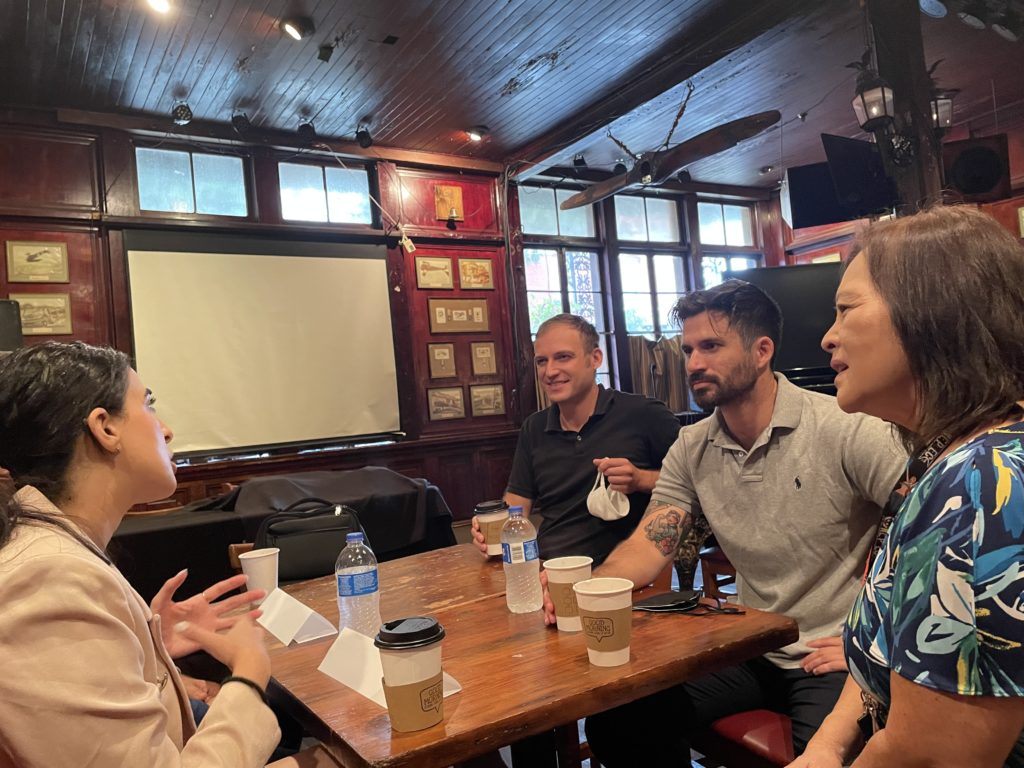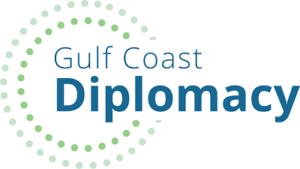When International Visitor Leadership Program participants come to Northwest Florida, they explore the objectives in their itineraries through a series of meetings and workshops. They also experience our local culture through time with individuals, ticketed events, and unstructured weekend time.
For example, when visitors looking at Developing Entrepreneurship, Start-Ups, and the Technology Sector arrived in Florida, their agenda included a community coffee at Seville Quarter and dinners in the homes of Gulf Coast Diplomacy members Faye and Robert Robinson and Leigh and Kent DeSantis. They took a weekend dolphin cruise and experienced volunteerism through time with Serving the Hungry.
Their professional agenda included meeting Councilmember Jared Moore at Pensacola City Hall for an official welcome and overview of local government. Their time ended with a presentation of certificates of honorary citizenship with the city and smiles all around.
A meeting with the University of West Florida College of Business showcased the programs and support available at a university level to encourage entrepreneurship. The visitors met with Dean Rick Fountain, Associate Dean Dr. Allison Green, Captain Tim Kinsella of the Center of Leadership, and Dr. John Batchelor of the Department of Business Administration. The visitors also met with CEO David Fries of Guided Particle Systems, and Studer Community Institute staff offered the group a tour of The Spring, which supports entrepreneurs as they grow their small businesses.
A tour of CO:LAB was a natural fit for the topic. While there, they met with Scott Luth, formerly of FloridaWest Economic Development Alliance, and explored the services and facilities of a collaborative business incubator and growth accelerator with Patrick Rooney. Meetings with entrepreneurs in the space provided a deeper understanding of CO:LAB and its services.
After three business days and a weekend in Pensacola, the group was off to another community, taking fond memories and their new connections with them. This interaction was made possible by the U.S. Department of State. American Councils for International Education administered the project nationally, and Gulf Coast Diplomacy created the local program with the generous help of its members and area professionals.

